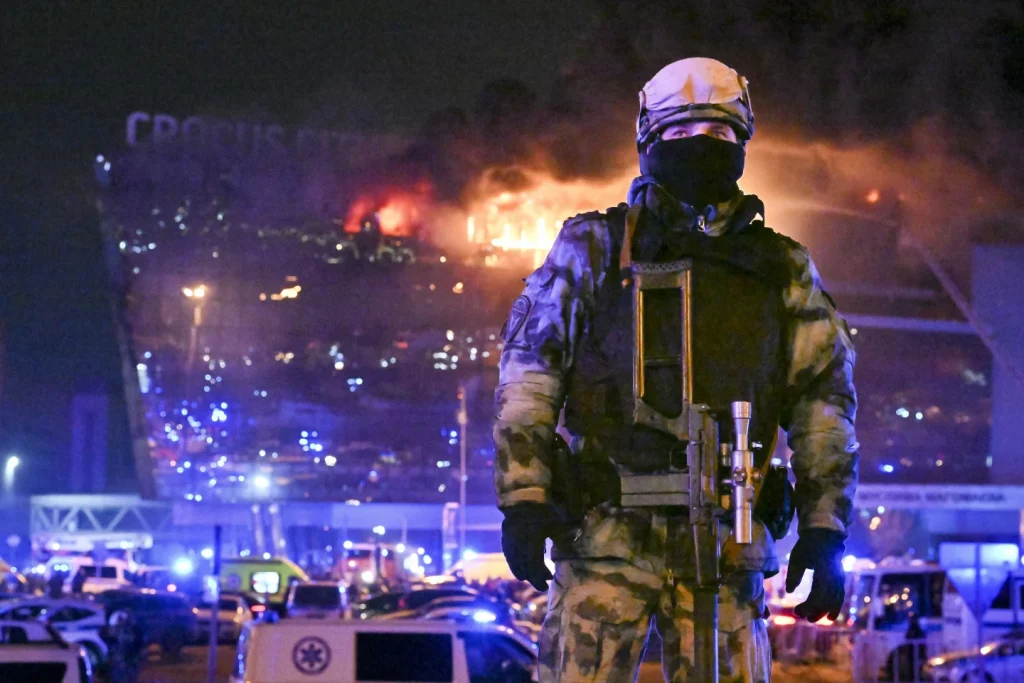The recent tragic events in Russia, culminating in the horrific attack that claimed the lives of over 140 individuals, have not only shocked the nation but also raised serious questions about the efficacy of the country’s security apparatus and the government’s response to such threats.
The inclusion of the international LGBTQ+ “movement” in the government’s register of extremist and terrorist groups, alongside notorious organizations like al-Qaida and the Islamic State group, has sparked controversy and highlighted the complexities of evaluating threats in a diverse and dynamic society.
The attack on the concert hall, which occurred just hours after the addition of LGBTQ+ activists to the register, represents a significant security failure in a country that has historically prided itself on its tough stance against terrorism.
President Vladimir Putin, who has been in power for 24 years, initially rose to prominence by taking a hardline approach against insurgents in Chechnya. The fact that such a devastating attack could occur under his watch has prompted widespread scrutiny and criticism.
One of the key factors contributing to this security lapse is the government’s intense focus on stifling dissent and quashing political opposition.
In recent years, Russia has witnessed a severe crackdown on independent media, civil society groups, and individual protesters.
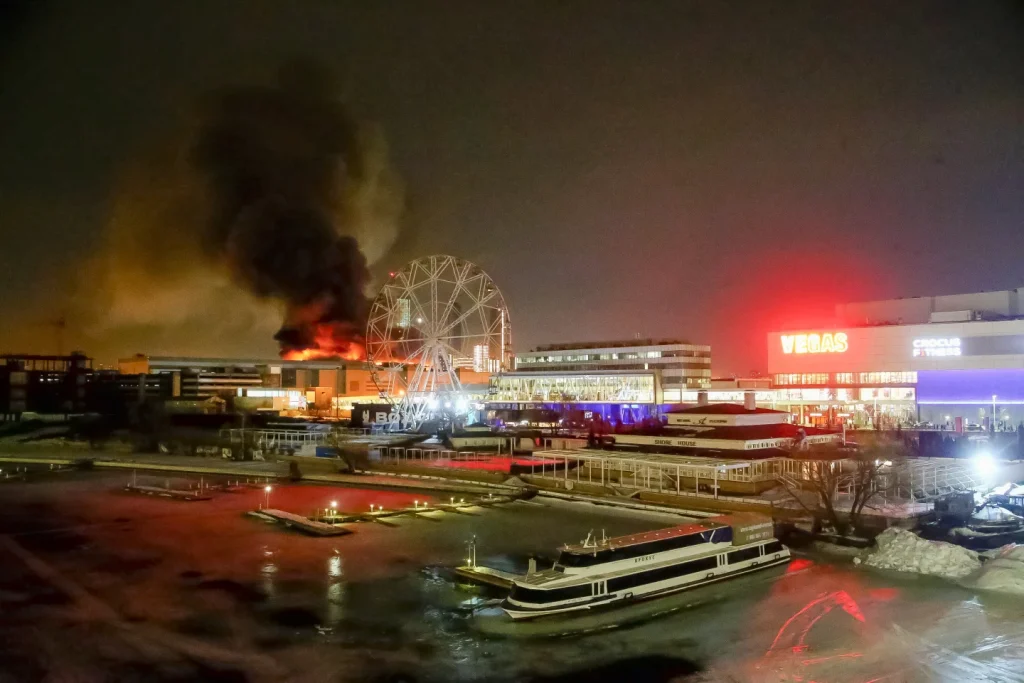
The repressions have only escalated following the invasion of Ukraine, with harsh measures being implemented to suppress any form of dissent.
The designation of opposition groups as “extremists” has become a common tactic to silence dissenting voices and justify draconian measures against perceived threats to the state.
Even the late opposition leader Alexei Navalny, who garnered widespread support for his anti-corruption efforts, was branded as an extremist and sentenced to a lengthy prison term.
His political network, along with the LGBTQ+ “movement,” now finds itself on the register of extremist and terrorist organizations, highlighting the government’s broad interpretation of what constitutes a threat.
The preoccupation of security agencies with cracking down on political dissidents and monitoring social media for anti-government sentiment has drawn attention away from addressing real security threats, such as terrorism.
As Navalny’s close associate Leonid Volkov aptly pointed out, the focus on inventing fictitious terrorists among those who simply think or love differently has diverted resources and attention from genuine security concerns.
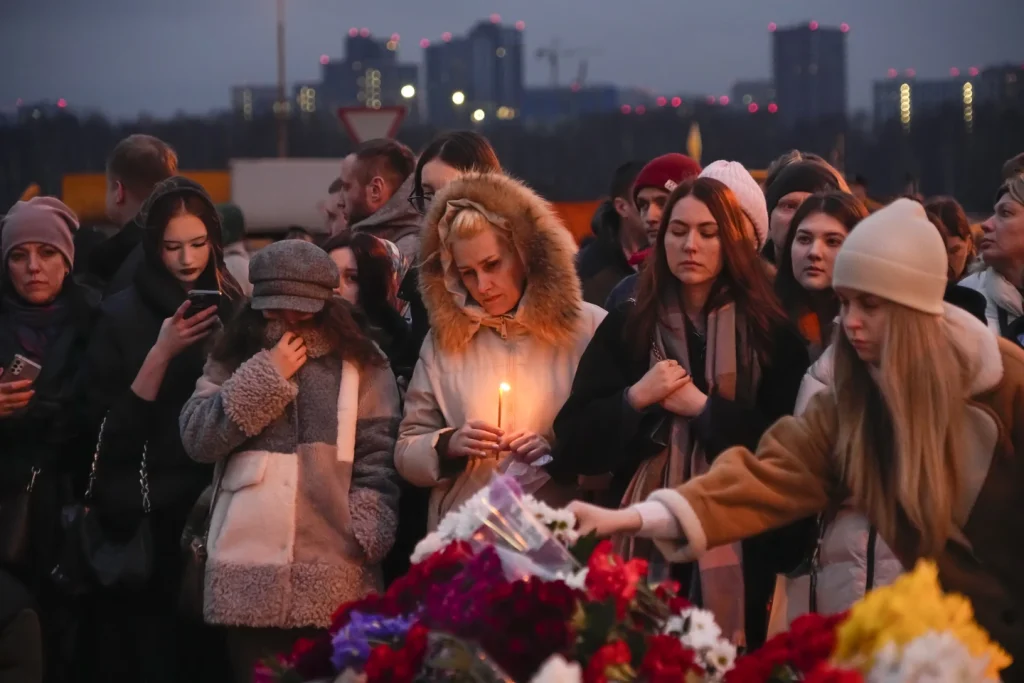
Amidst ongoing tensions with Ukraine and the challenges posed by the conflict, security forces have been stretched thin, grappling with suspected foreign agents and potential acts of sabotage.
The aftermath of the concert hall attack saw a familiar pattern of repression, with individuals being detained for expressing opinions deemed offensive by the authorities on social media.
In conclusion, the failure to prevent the tragic events of March 22 and the subsequent chaotic response underscore the need for a reevaluation of Russia’s security priorities and strategies.
By prioritizing the suppression of dissent over addressing real security threats, the government risks leaving the nation vulnerable to attacks and undermining the safety and well-being of its citizens.
It is imperative that a more balanced and effective approach be adopted to ensure the protection of the country and its people in an increasingly complex and uncertain world.
In the realm of international relations, the delicate dance between nations can often be fraught with tension, suspicion, and miscommunication.
The recent incident involving a U.S. warning to Russia, which was subsequently dismissed as ‘blackmail’ by Russian President Vladimir Putin, highlights the complexities and challenges that define modern geopolitics.
The U.S. government’s decision to inform Russia about an imminent attack, citing the “duty to warn” rule that mandates intelligence sharing, underscores the importance of transparency and cooperation in preventing potential threats, even with adversarial nations.
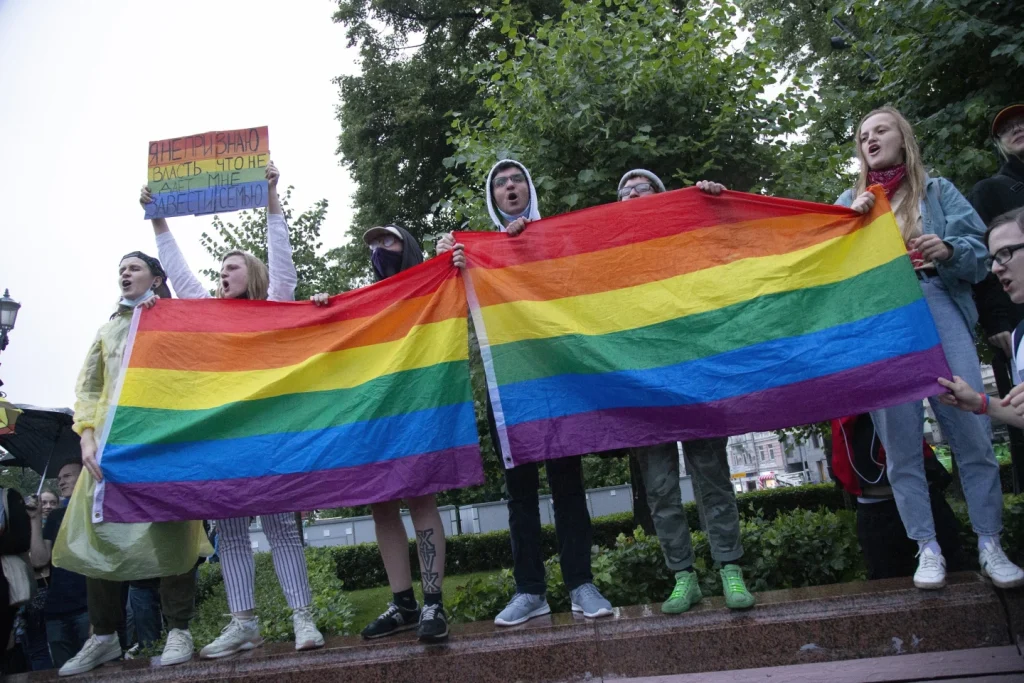
However, the response from Moscow, characterized by skepticism and accusations of manipulation, reflects the deep-seated distrust and animosity that currently pervade Russia-U.S. relations.
The U.S. Embassy’s public notice urging Americans to avoid crowded areas in Moscow due to extremist threats further exacerbated tensions, with Putin dismissing it as a ploy to intimidate Russians and undermine the Kremlin’s authority.
The subsequent failure of Russian security forces to prevent the attack, despite receiving the warning, raises questions about the efficacy of intelligence-sharing mechanisms and the readiness of law enforcement agencies to respond swiftly to emerging threats.
The Kremlin’s efforts to deflect blame onto Ukraine, despite lack of concrete evidence linking the attack to the country, reveal a pattern of scapegoating and misinformation aimed at diverting attention from internal security lapses.
By attempting to implicate Ukraine and the West in the attack, Putin and his officials seek to sow confusion and exploit public fears for political gain, perpetuating a narrative of external threats to justify authoritarian measures.
The delayed and chaotic manhunt that followed the attack further underscored the challenges faced by Russian authorities in apprehending suspects and unraveling the complexities of terrorist networks operating within and beyond the country’s borders.
The conflicting narratives surrounding the attackers’ motives, connections, and affiliations highlight the need for a coordinated and evidence-based approach to counterterrorism efforts, free from the influence of political agendas and propaganda.
In light of these developments, the international community must remain vigilant against attempts to exploit security threats for geopolitical gain and uphold the principles of transparency, accountability, and cooperation in addressing shared challenges.
The dismissal of U.S. warnings as ‘blackmail’ by Russia serves as a cautionary tale of the dangers of mistrust and miscommunication in an increasingly volatile global landscape, where the stakes are high and the consequences of failure are dire.
As we reflect on the events that have unfolded, it is imperative that we learn from the mistakes and missteps that have occurred, and strive towards a future characterized by mutual understanding, dialogue, and collaboration in the pursuit of peace and security for all nations.
Only through genuine efforts to bridge divides, build trust, and uphold the rule of law can we hope to prevent further tragedies and foster a world where diplomacy triumphs over discord, and cooperation prevails over conflict.
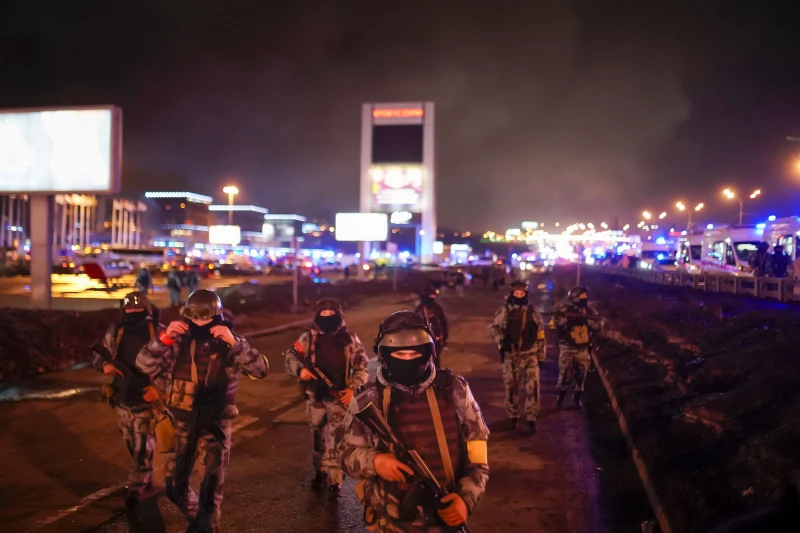
In conclusion, the incident involving the U.S. warning dismissed as ‘blackmail’ by Russia serves as a sobering reminder of the complexities and challenges inherent in international relations, and the urgent need for concerted action to address the root causes of insecurity and mistrust that threaten to undermine global stability and prosperity.
It is only through a shared commitment to dialogue, cooperation, and respect for international norms and principles that we can hope to build a more secure, peaceful, and prosperous world for future generations.
